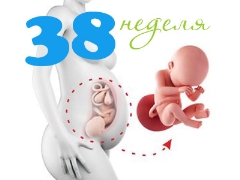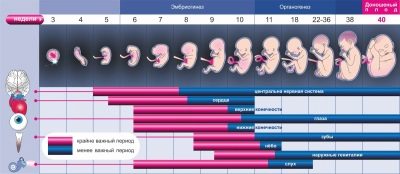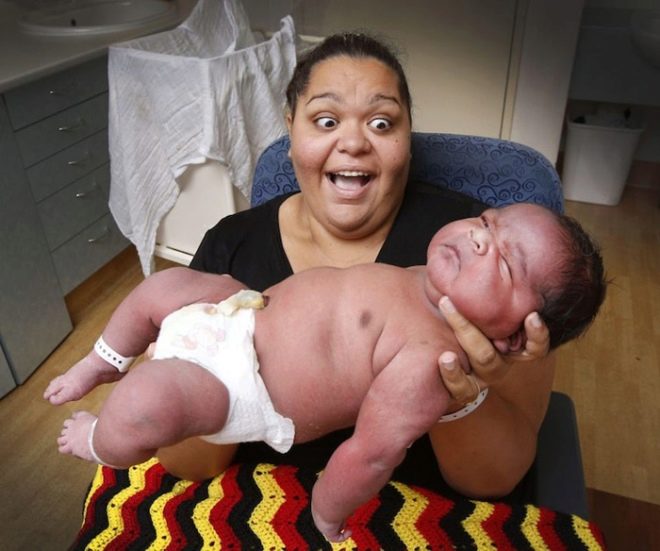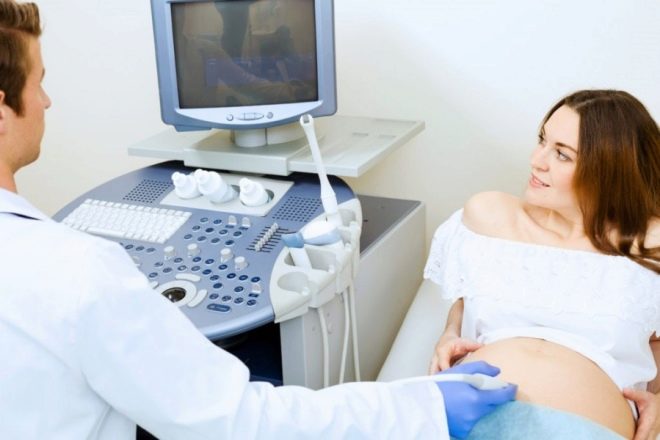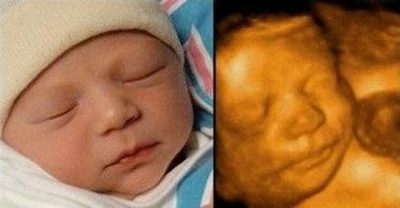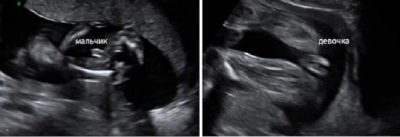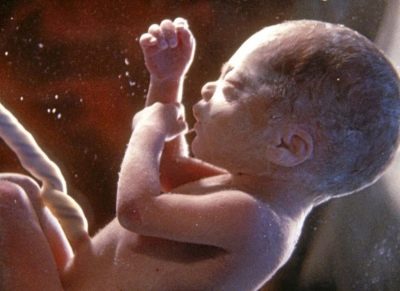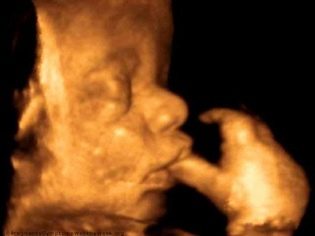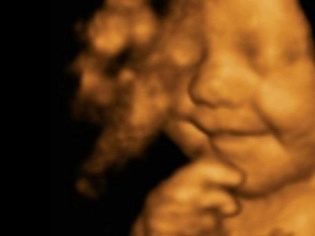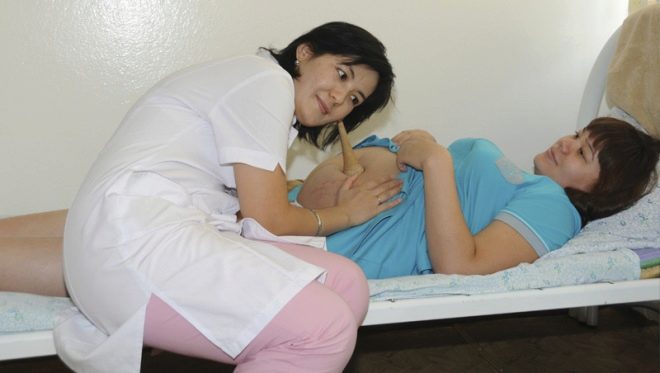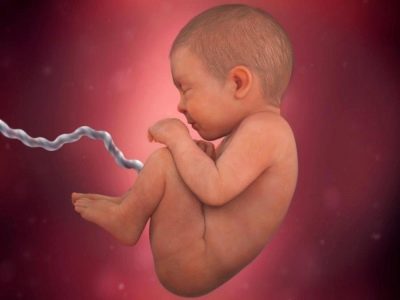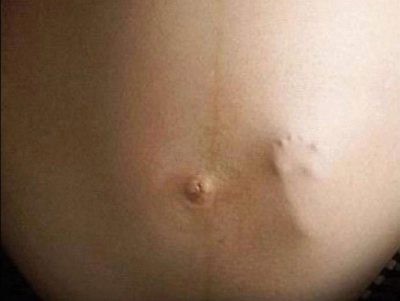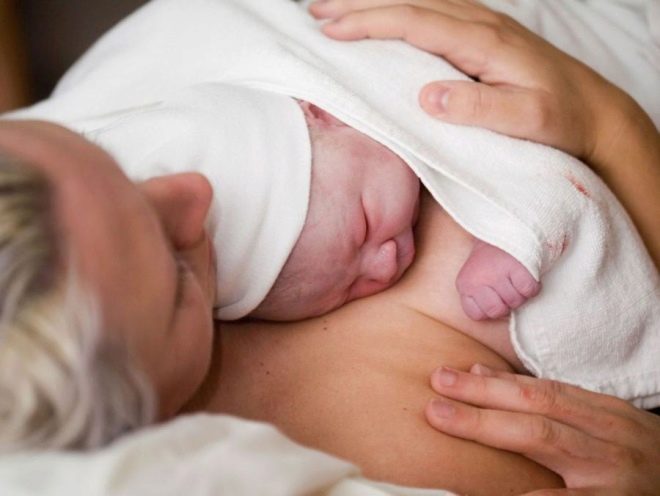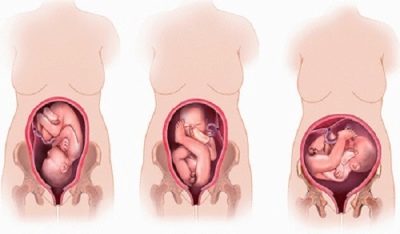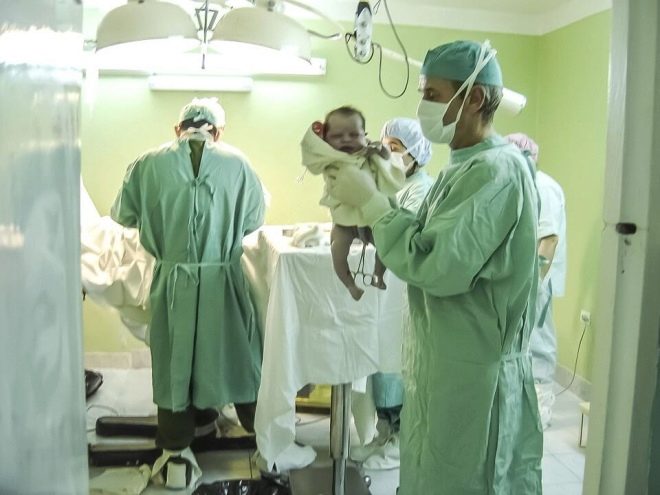Fetus at 38 weeks gestation: norms and characteristics
The 38th week of pregnancy is exactly 36 weeks of embryonic development of the crumbs. That is how much time it grows and develops inside the mother's womb. During this time, the baby has come a long way, completely repeating the entire evolution of humanity.
What he has become and what is happening to him now, we will tell in this material.
Weight and height
The fetus at the 38th week of pregnancy is fully prepared for independent life outside of my mother's abdomen. ROdes can happen at any time, and you should not be afraid of it - they will not be considered premature, because the baby is fully matured.
What are his height and weight, is difficult to answer. The time of embryonic development passed, when all the crumbs grew at about the same speed.
Now the size of the baby is purely individual and depends on two components: heredity and health.
If mom and dad have solid forms in the crumbs, then the crumbs will not be small. If the parents are tiny, then the baby will be small. The weight of the fetus, while it is in the mother's womb, is difficult to determine, therefore, such a concept as “estimated weight” is used.
It assumes its program embedded in the ultrasound scanner. According to the size of the individual parts of the body of the child, she first gives an opinion on the possible mass of his body. Note that the error in this case is about 14% of the child’s body mass up or down.
On average, babies at 38 obstetric week weigh more than 3 kilograms (3200-3600 g). Height is 48-50 cm. A large fruit in this period already weighs about 4 kilograms, and its growth can be 55-56 centimeters. If the pregnancy is difficult - with preeclampsia, Rh-conflict, intrauterine growth retardation, the weight may be small for a given period - within 2600-2800 grams.
Fetometry on ultrasound - norms
Ultrasound on this period is done to clarify the expected date of birth, to assess the degree of maturity of the lungs of the baby and to study the characteristics of the placenta, which "works" at the limit of its capabilities - its inevitable aging began.
Fetometric indicators of the baby at this time are as follows:
- bipartial head size (BPR) on average - 93-94 mm;
- frontal occipital size (LZR) - 110-118 mm;
- thigh length - 74-75 mm;
- bone length - 64-65 mm;
- tummy circumference - 330-336 mm;
- Head circumference - 330-333 mm
- chest diameter - 101 mm.
At 37-38 week there are no strict norms, because the constitution is also an individual trait.
In some babies, the length of the hip will be more than the norm just because the baby has inherited long legs, and the other has a head less than the norm, because everyone in the family has small neat heads, so the data presented above are just average numbers.
Appearance
At 38 weeks gestation, the baby looks like a fully formed little person. That is how mom will see him very soon, nothing will change in his appearance.
The skin of the crumbs acquired a pink, delicate shade; they are no longer red or wrinkled.Wrinkles smoothed out due to the fact that for the third trimester the baby has accumulated a large amount of subcutaneous fat, for the same reason the skin color has changed.
The blood vessels with the advent of "fatty layer" have become farther from the skin surface, the redness and the grid of blood vessels are now almost not visible.
Some the palms and heels remained wrinkled, but they will remain so after giving birth at least another 1-2 months. More recently, the entire body of a child and his face covered with white thick original lubricant. She protected thin, like parchment, skin from the negative impact of various factors. Now there is no lubrication. It remained in small quantities only where there is a chance of friction - in the folds of the skin in the groin, under the knees, in the crook of the upper limbs and just a little bit in the neck fold.
In 98% of boys, by the 38th week, the testicles descended into the scrotumThis fact can be certified by an ultrasound doctor. For the rest, the testicles may drop to 40 weeks or after childbirth.
In girls on the 38th week of gestation, the labia minora is covered with large lips.This is the main sign of the correct development of the external genital organs in female fetuses.
Both the labia and the scrotum can be slightly enlarged, since right now a large amount of estrogen is produced in the maternal organism - hormones that help the mother's body to prepare for childbirth. The side effect of these hormones is a slight swelling of the genitals and mammary glands of the fetus.
The amount of hair on the head may be different. There are kids with a solid and funny head of hair, and there are crumbs bald, this is a genetic feature. But all the babies this week have rather long and sharp fingernails, and they continue to grow.
Lanugo - a small down that covered the entire body of a baby, disappears completely at week 38. The skin becomes smooth and tender.
The facial skeleton and facial muscles are fully formed. The three-dimensional image of the ultrasound clearly shows which of the parents looks like a child, and if you make a four-dimensional ultrasound, you can enjoy the variety of grimaces and facial movements, which the crumb now “perfectly owns”.
The development of internal organs
All organs of the baby are formed and are already working. The exceptions are only the lungs, which will begin to work immediately after birth. They are now completing an important process - the accumulation of a special substance surfactant, which will enable the lungs to turn around normally at the first breath of the baby.
The cardiovascular system of the baby works smoothly - heart rate (HR) on this period is on average 157 beats per minute (admissible fluctuations - from 146 to 168 beats per minute).
In boys, the heart beats a little slower than in girls, although this fact, confirmed by midwives with a wealth of experience, is not recognized by official medicine. Heartbeat well listened to by ultrasound, CTG, and even at home with a conventional phonendoscope.
The digestive organs of the baby are coordinated with each other.. He swallows the amniotic fluid, the stomach digests them, he regurgitates the surplus (so does hiccups), the rest enters the intestine, which has already accumulated and continues to accumulate the original cal meconium in black and green. It is meconium that comes out of the intestines after birth, thus the work of the digestive organs in a new environment for the baby will be launched.
The kidneys, liver, pancreas of the child and other organs regularly perform their functions.
Nervous system
The nervous system is still imperfect. And so it will be a long time after the birth. Every day, new neural connections appear in the brain, and this process will continue.
The baby moves quite "meaningfully"All his movements at the level of motor controls the brain. A few months ago, most of the movements were chaotic.In the arsenal of little ones there are several dozen reflex movements necessary for a person, even if so small, to survive.
Perfectly, the baby owns sucking, swallowing and grasping reflexes. He feels a lot and subconsciously understands: this can explain the emotional response that babies demonstrate at 38 weeks gestation.
They can experience fear, joy, they can experience and be nervous with their mother if she experiences. They recognize native voices from a host of other sounds.
Sense organs
A child in the 38th week of pregnancy, while not sleeping, is actively exploring the world that surrounds him in the womb. He opens and closes his eyes. The vision is formed, but its functions are still insufficient., to see in the normal understanding of this word, the child will begin a few weeks after its birth.
Now he only distinguishes blurry outlines and light spots, well distinguishes light from darkness and already knows for sure when outside of her mother's tum is day and when is night.
Baby ear works fine. He listens to the voices of mom and dad, mother's heartbeat, intestinal peristalsis, humming blood flow through the vessels. Extraneous sounds, especially harsh and sudden, can scare the baby, for example, clapping, ringing, loud dog barking. In response to the familiar, and therefore “safe” sounds in the understanding of the crumbs, the baby calms down, strangers can cause him to have increased physical activity or freeze in anticipation - this depends on the character of the baby.
Baby on week 38 distinguishes taste well, taste buds work and give him all the necessary information about the taste of amniotic fluid, which varies depending on the food that mom consumes.
The sense of touch in the baby is well developed, in the womb he studied a lot by touch, and after birth tactile contact with the mother for a long time will be the best “soothing” for the baby.
Stirrings
The amount of movement in the normal at 38 weeks can decrease, because the baby is already so large that it takes up the entire uterus, there is no room for maneuvers and movements. This does not mean that a woman should stop following the amount of perturbations. As before, need to celebrate them within 12 hours. During this time, the mother must count at least 10 episodes of activity..
If it seems that the baby moves a little, it has calmed down for more than 3-4 hours, it makes sense to inform the doctor about it. Active movements, especially at night, if they bring pain to a woman, if they are sharp, chaotic, can also be an unfavorable sign of possible fetal hypoxia due to aging of the placenta, due to entanglement by the umbilical cord.
If the baby moves very much or, conversely, moves a little, CTG, ultrasound should be done and, together with the doctor, decide what to do next.
Previa
At this period, the vast majority of babies take the most suitable position for birth - the head. With him, the head of the fetus is already tightly pressed to the exit of the pelvis, almost rests against it, it causes unusual sensations in the mother - she pulls the lower abdomen, there may be different "tingling" in the lower abdomen, often urge to urinate.
If the baby puts a lot of pressure on the nerve endings, the woman may feel as if she is “shocked by the current.”
If the crumb this week is in pelvic presentation or is located across - in previa presentation, then there is almost no chance of a revolution in the head position due to the fact that there is very little space left in the uterus for movements, and the amount of amniotic fluid has decreased significantly. .
At week 38, they do an ultrasound scan, and if the abnormal location is confirmed, a planned cesarean section is assignedwhich is carried out on the 38-39 week, or a week later. In addition to the risk of injury during childbirth, if the child lies incorrectly, the presentation of any other threat to the baby does not create.
Possible problems
What happens to a baby at 38 weeks gestation can be told by cardiotocography, which is sometimes prescribed before birth at this time. If according to the results of the study, the baby has tachycardia or bradycardia, if he frequently has hiccups, hypoxia is not excluded, women will be offered stimulation of delivery or cesarean section as soon as possible.
If the expectant mother is already in the hospital, the CTG will be done there, if she is at home, the procedure will be followed up at a consultation at the place of residence.
Independent labor can begin at this time. In front of them, babies usually subside in a few days and reduce their activity. Childbirth can begin with contractions, with leakage or discharge of amniotic fluid, from the exit of the mucus plug from the cervical canal.
If untypical discharge occurs at this time, increasing back pain in the lower abdomen, the expectant mother should call an ambulance. or independently go to the hospital. According to statistics, about 35% of babies are not born in the DA (the expected date of birth, indicated in the exchange card), but at the 38th week of pregnancy. This is completely normal.
More information about pregnancy at 38 weeks can be from the following video.
